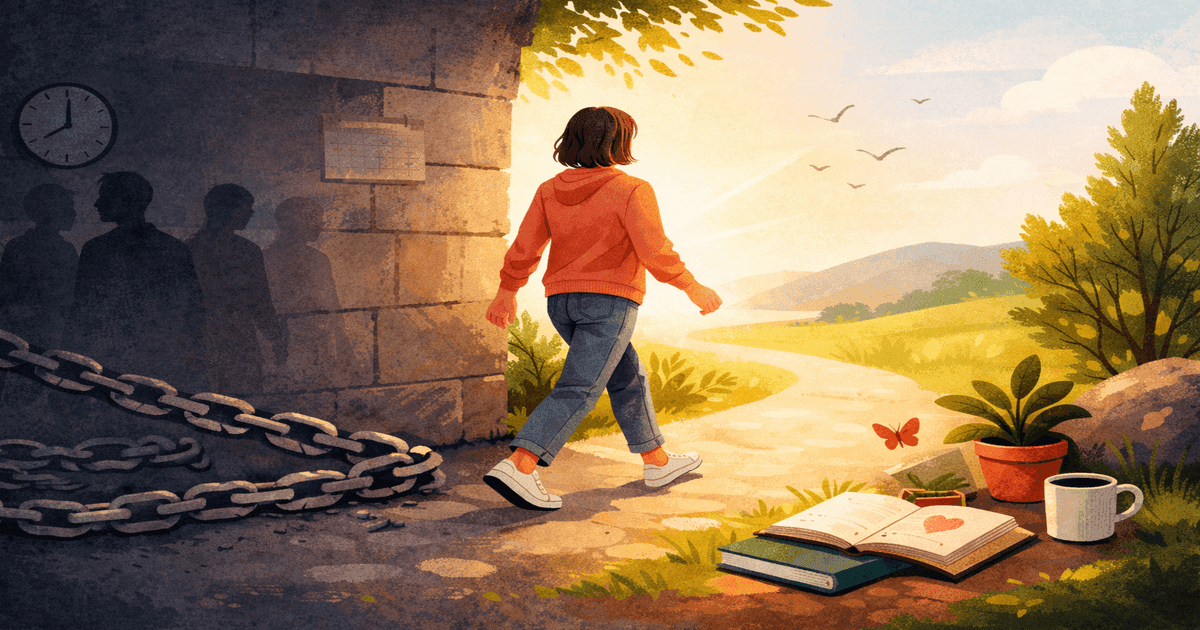What if one of the simplest ways to support your mental health, something you don’t even have to pay for, was all around you? We are in a time when people are searching for relief from stress and anxiety everywhere, without realising the solution might be closer than you think. In fact, it could be right at your fingertips. Nature has the power to calm your mind, lift your mood, and help you feel more balanced every day. In this article, you’ll understand the power of nature and learn simple ways it can improve your mental health.
What is Nature?
The Oxford English Dictionary (OED) defines nature as the phenomena of the physical world collectively; especially plants, animals, and other features and products of the Earth itself, as opposed to humans and human creations.
While man has been endowed with the grace to create and make life comfortable, nature as defined above exists beyond human creation. Its purpose is to bring ease and balance into our lives. It is only unfortunate that we are just scratching the surface of its true potential.
Nature is hopeful, and you don’t have to look far to experience it. Everything around us constitutes nature; the sun, the moon, trees, flowers, fruits, birds, animals and even human beings.
Beyond providing for our survival and offering goods and services, nature has profound effects on our emotional wellness. It interacts with parts of the brain responsible for regulating emotions, helping us feel calmer, more balanced, and more resilient.
Why Nature Matters for Mental Health
Nature has a remarkable impact on mental health. Research shows that spending time outdoors can significantly boost emotional well-being. The beautiful part is that it has nothing to do with whether you’re an extrovert or an introvert; as long as you have an interaction with the environment, you can reap the benefits.
"In every walk with nature one receives far more than he seeks.” John Muir
Nature is more than scenery, it’s therapy. It calms the mind, lowers stress levels, and helps us feel more grounded. Studies have linked time in nature to reduced anxiety, better mood, and even improved cognitive function.
According to the American Psychological Association (APA), spending just 20 minutes in nature can significantly reduce cortisol levels, the hormone linked to stress.
Similarly, a 2020 study in Frontiers in Psychology revealed that individuals who spent at least 120 minutes per week in natural environments reported higher levels of life satisfaction and lower levels of anxiety compared to those who didn’t.
The green of the trees, the sound of birds, the fresh air all have a way of telling your mind, slow down.
How Nature Changes Your Brain
When you’re in nature, your brain activity shifts. Studies show that being outdoors increases activity in the prefrontal cortex, the part of the brain associated with focus and problem-solving, while reducing activity in the amygdala, which is linked to fear and stress. This means nature doesn’t just make you feel good, it literally rewires your brain to function better under stress.
Types of Nature Therapy
Nature therapy, also called ecotherapy, uses the natural world to support mental and physical well-being. Some of the most common types include:
- Forest Immersion
Spending time in wooded areas to connect deeply with the environment and benefit from its calming presence.
- Walking in Nature
Moving through parks, trails, or green spaces to experience the restorative energy of natural surroundings.
- Gardening-Based Therapy
Engaging with plants and gardens as a way to nurture growth, foster calm, and improve emotional health.
- Meditation in Natural Settings
Practicing mindfulness and meditation focused on elements of nature to enhance relaxation and awareness.
- Community Green Projects
Participating in group gardening or environmental activities that combine social interaction with exposure to greenery.
- Outdoor Adventure Therapy
Using activities like hiking, camping, or exploring natural landscapes to build resilience and personal growth.
- Animal and Nature Interaction
Connecting with animals in natural surroundings to uplift mood, reduce stress, and encourage emotional balance.
Practical Ways to Connect with Nature Every Day
You don’t need a mountain getaway to feel the benefits of nature. You can follow these tips to make it part of your routine:
- Take a walk outdoors: A simple stroll in your neighborhood, through the park or under tree-lined streets can clear your mind and reduce stress.

- Visit natural spaces: If you have a beach, zoo, or scenic park nearby, spend some time there. You don’t have to do anything serious; it can be as simple as sitting, reflecting, and breathing
- Bring nature indoors: Add houseplants to your space and if you have access to a garden, spend time caring for them. Touching soil, watering plants, or simply watching them grow can reduce anxiety and promote a sense of accomplishment and calm.
- Mindful Exercises: You can also engage with nature through simple, mindful exercises. Try sitting under the evening stars with your eyes closed or breathing in the fresh scent after rain. Lie on the beach sand and let your mind connect with the rhythm of the waves. Watch animals in their natural behavior; the birds flying, the cat meowing, the cooing of doves and simply be present in the moment.
- Immerse in seasonal changes: Experience each season fully by observing its unique offerings. In spring, notice blossoms and new growth; in summer, feel the warmth of the sun and long days; in autumn, watch leaves change color; in winter, appreciate stillness and crisp air. Tuning into seasonal changes connects you with life’s natural rhythms and promotes emotional balance.
Nature engages your senses in ways that technology cannot. It gives your brain a break from screens, notifications, and noise. This mental pause can improve focus, boost creativity, and enhance emotional balance.
So next time you feel overwhelmed, don’t underestimate the healing power around you. Today, step outside and notice one thing in nature you’ve never paid attention to before.
Struggling with your mental health? Book a session with our licensed therapist today.



